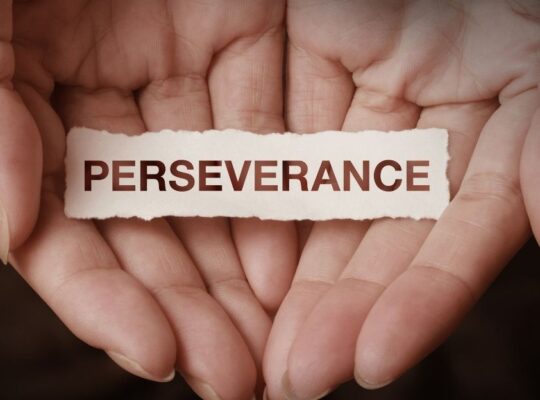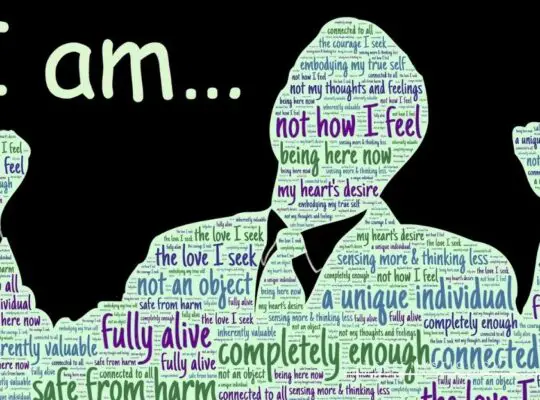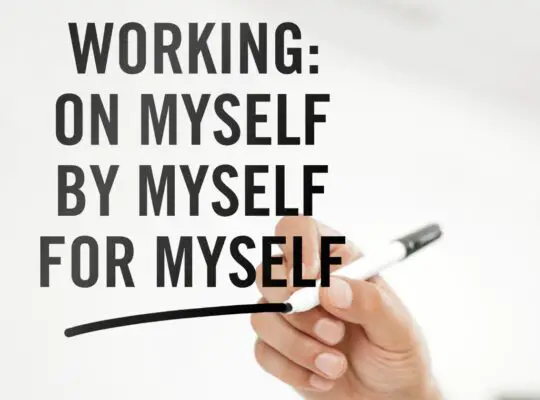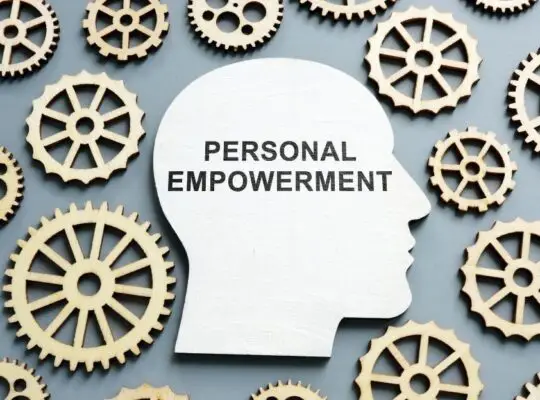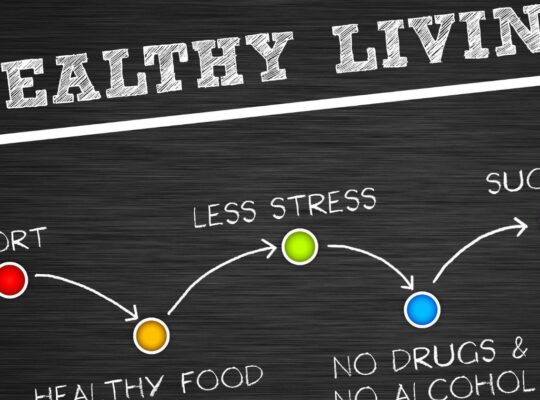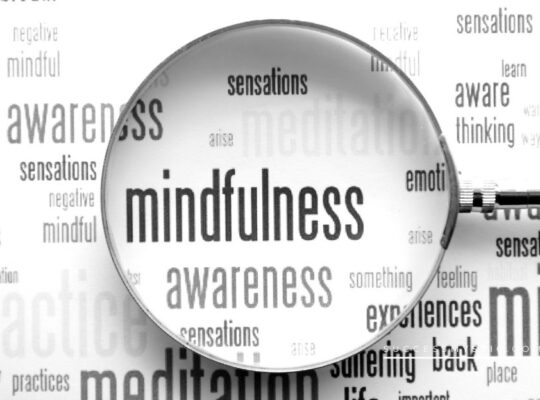STOP BATTLING YOURSELF, STRIP AWAY CONSTRAINTS AND GET FREE
It seems as though every television show, book, and movie feature a character getting themselves into trouble, then trying desperately to dig their way out of it. Perhaps art does imitate life because it often feels as though we do the same thing. That’s conflict.
You can’t live with or without it, truth be told. It doesn’t matter whether it’s a fictional story on screen or in your own life, conflict is inevitably what drives our story forward.
Conflict affects everything in our lives, from the people around us, the job we do, the happiness we feel, the relationships we hold. It’s all connected and conflict, whether inner conflict or otherwise, is driving you.
You’re in a situation and while you feel like there are things you’re getting right; you just can’t shake this feeling of something being wrong. It’s difficult to wade through the mess and find clarity. Is this inner conflict?
It is.
It feels as though your brain is being squeezed by a vice, you feel desperate. How can you handle all of this confusion?
What is Inner Conflict. Why Does It Happen.
Inner conflict is essentially created when you hold opposing desires, feelings, beliefs or impulses simultaneously. It may also be referred to as cognitive dissonance, which directly deals with conflicting thoughts, attitudes, and beliefs. This is a mental struggle any of us can experience, whether it’s a work issue, moral, relationship, familial, social ideology or religious belief.
A prime example of inner conflict would be someone who believes deeply in the women’s rights movement, but also thinks abortion should remain illegal. Relationships aren’t immune from inner conflict either. In terms of religion, people struggle with inner conflict when they are faced with a teaching or doctrine that they do not believe or feel uncomfortable sharing.
When you experience any inner conflict, what’s really happening is there’s disagreement between your head and your gut.
Your gut has an intelligence of its own. There’s an intuitiveness there that guides you. Yet, the society we grew up in is dominated by the mind. This can create inner conflict when the two don’t align.
You can continue to listen to your mind, you can obey the messages you have been receiving your entire lift and follow this path. That is until you reach a stage of inner conflict. There’s a reason, though, that so many people rely on their gut instinct. That abstract intelligence is what keeps us safe.
Your intelligence is what provides your life with direction and structure. Your gut instinct is what is breathing truth into your journey. The balance of the two, that’s what provides your life with authenticity.
Without the guiding influence of your gut, you become a soulless robot only listening to your mind. Yet, if you only listen to your gut you would lead a life of chaos. You need both guidance systems, but as humans, we value one more than the other. This is where inner conflict comes from.
Inner conflict occurs because we lack the balance between mind and gut. Your gut is telling you one thing, your mind is saying another, but they are both shouting loudly. When you act in a way that doesn’t align with your values, you feel discomfort.
You may even feel guilt and shame. So, how do you know whether to listen to your gut or your mind? When do you choose mind over gut and vice versa? Why should you choose that direction? Before we tackle that, let’s tackle what creates inner conflict.
What Creates Inner Conflict
There are a wide variety of reasons for our inner conflict. There might not be a single factor, it could be numerous issues that are creating the conflict.
- We inherit a set of rules and beliefs from our parents, we don’t always agree with those as we get older.
- We are often exposed and indoctrinated to believe religious dogmas, creeds, and beliefs. We don’t always hold true to those as we get older.
- We adopt societal values as we grow up, they don’t always align with current values.
The more beliefs, expectations, desires, and ideas that you hold, the more likely you are to struggle with inner conflict. It’s inner growing pains. You are beginning to unconsciously question the values, beliefs, and desires you have held for so long.
Nine Types of Inner Conflict
1| Religious
This is a common form of inner conflict. We all hold values, but people who practice religion have a set of beliefs. They are fragile. It could be a basic inner conflict, such as believing that your god is a loving one.
Yet, finding it difficult to reconcile that a loving god would condemn his own creations to an eternity in hell. Or, it could be something a little more difficult, such as believing that medical marijuana should be legal everywhere. The science shows its worth, but you are faithfully religious, and it doesn’t align with your holy text. You value your religion and you value truth, but there’s an imbalance.
2| Moral
This type of inner conflict arises when you have conflicting beliefs that revolve around your morals. An example of this would be, that you are a full believer in human rights, but you are against the legalization of euthanasia. It could be that you value truth and honesty above all else but feel compelled to lie to protect someone else.
3| Self-Image
Self-image is the idea(s) that you hold about yourself. You believe yourself to be a loving, compassionate, patient person. You are disorganized and you support animal rights and human rights with the same breathless passion.
You will face inner conflict when you’re met with a piece of evidence that is contradictory to your self-image. You may choose to tell some white lies on your resume, all to get your dream job. You may be passionate about healthy eating, but unable to drop a smoking habit.
You do your utmost to consume ethically, but we live in a capitalist society so there’s a good chance you purchase products that have been created in poor working conditions.
4| Sexual
This is generally an inner conflict that overlaps with other inner conflicts. For example, sexual conflict tends to tie into a moral or religious conflict. You have spent your life worshiping in a Baptist church, but you later came to the realization that you are gay. You grew up believing that monogamous relationships are the ideal, but you believe polyamory is more suited to you as a person.
5| Love
You love someone, but you continue to do things that hurt you. It might be that you have a bad habit like smoking that your partner hates. It might be that you love your children and feel guilty about having to punish them when they act out. It might be that despite the fact that you love someone with wild abandon that you have to let them go.
6| Political
If you feel split between the beliefs of the political party you align yourself with and your own beliefs, then you have experienced politically driven inner conflict.
This is a common inner conflict because most of us vote one way while not necessarily agreeing with every policy or platform of that party. Our political world has become very much about voting for the lesser of two evils and that can create a lot of inner conflict for many people.
7| Interpersonal
This is another type of inner conflict that often ties into other conflicts such as love or self-image. This tends to crop up when you’re in a social situation. You would like to be acting like yourself, but you find yourself acting differently. You hate sports, you could not care less about them, but when you’re with your co-workers you feel forced to engage in conversation about sports.
If you’re an introvert, there’s a good chance you’ve put on a facade of high energy just to fit in. Perhaps you have a friend who constantly says offensive things, but you don’t feel brave enough to speak up even if you’re desperate to.
8| Existential
This type of conflict arises when you’re experiencing confusion or discomfort about life in general. It’s common when you are dealing with two desires or beliefs that oppose each other. You love life, but also hate it at the exact same time. You’re desperate to live life to the max, but you’re too scared to leave your comfort zone.
9| Triggers Of Inner Conflict
There are five main areas or triggers that inner conflict falls into.
- Desire
- Duty
- Expectation
- Fear
- Need
When you’re experiencing two of these at one time, you’re experiencing the confusion, doubt, and fear of inner conflict.
Finding Peace of Mind
It all begins with inner conflict. The root of which is found in your expectations, beliefs, and desires. It’s easy to fall into a state of inner conflict when you don’t know your priorities, beliefs, and values.
At its core, your indecisiveness is simply a lack of clarity. Clarity is finding an understanding of where your priorities and values align. It’s knowing exactly how you’d like to live and knowing what it takes to do that.
This isn’t an easy thing to do, though. It will require self-reflection on your part. You will need to be deeply honest about your wants and needs. Use a journal, make lists, think deeply, and consider what you’re passionate about, what you don’t (or do) respond to.
What do you care about? What don’t you care about? Clarity is what you need to find peace of mind when you’re dealing with inner conflict. Here are some other effective ways to manage inner conflict.
1| Inner Conflict Isn’t Rooted In Reality
An illusion occurs when you attach yourself to something that isn’t real.
2| Inner Conflict Is Highlighting Deeper Issues
It might suggest that you’re putting pressure on yourself unnecessarily. You can put yourself at ease by using a deep breathing exercise. This will help ground you in the moment and leave you feeling more centered.
3| Surrender
When you try to push through struggles you are left exhausted. Surrendering doesn’t mean that you’re giving up, it means you are permitting yourself to embrace what is. Sometimes surrendering is the most effective way forward.
4| Struggle
When you pour all of your attention into the needs and desires of others, you’re taking on too much. You’re dealing with inner conflict because you aren’t extending the self-care that you need.
5| Feel
You must allow yourself to feel. Inner conflict can take you out of reality. It’s easy to get caught up in it and lose sight of what’s going on around you. Forcing yourself to feel, whether through meditation or deep breathing, will help you feel grounded.
6| Change Your Mentality
You can’t maintain a mentality of good versus bad. That’s not the reality, but it’s something that drives an awful lot of inner conflict. It would be nice to think of life as being black and white, but there are shades of gray everywhere we look. You have to learn to recognize the nuances of life if you want to shake the inner conflict that’s plaguing you.
Many inner conflicts resolve themselves quite quickly. However, for those that don’t, consider the following.
7| Fear or Intuition?
Your gut has a long, strong voice. It isn’t always unemotional. Sometimes, it is driven by fear, leaving it emotionally charged. It’s vital that you learn how to distinguish between those voices. Know when your intuition is intact, or your gut instinct is instead being driven by fear. The balance of your mind and gut are going to help you make the right decision.
8| Pros & Cons
If you can’t find clarity in a situation, sometimes weighing the pros and cons can help you resolve your inner conflict. Of course, this entirely depends on your circumstances. However, this can help you determine your priorities and help you clarify what you value most.
9| The Fuel
What is fueling the confusion? Take a moment to write out the issue you’re facing. Now, ask yourself why. Why? It might be that you love your job, but that you feel guilty about the time away from your partner and children. Ask yourself why until you get to the source of the fuel.
10| Be Honest
What scares you so deeply? Our inner conflicts are often driven by fear. So, what is it? Finding the root of your fear might be exactly what you need to find direction and clarity.
11| Perspective
Try to fast forward to the end of your life. If you were on your deathbed, looking back on your life, what decision do you think you’d regret the most?
12| Resistance
What is creating the most resistance? Life tends to flow fairly effortlessly, it’s when your thoughts get involved that the trouble begins. So, explore resistance and ask yourself if you’re holding onto something that you should have let go of long ago.
Ask yourself this – are you trying to honor what you believe you should do or who you should be?
Or, are you pursuing authenticity?
Which of the two is aligned with love and truth? Often, our inner conflict is covering up something much deeper. It could be negative self-beliefs you have unconsciously held since childhood. It might be unresolved shame or wounds from your childhood.
Relax
If you want to gain new perspective(s), then you can do this by relaxing your mind. You can do this through meditation, mindfulness or, even just sitting and reflecting. Sometimes, we do our best problem solving when we’re not actively searching for a solution.
Participation
Are you actively searching for answers right now? Sometimes letting life move naturally is a helpful way to navigate a situation. Rather than blazing your path forcefully, you can momentarily choose to not participate.
Hopefully, the tips above can help you resolve the inner conflict you have been facing to find peace of mind. It’s important to remember that inner conflict is a normal human experience. It doesn’t make you bad or weird. People often romanticize ignoring their heads and pursuing what the gut says.
They call it following their hearts. It sounds romantic, but you’re creating an imbalance. Your gut and brain need to work in harmony. You need to learn to hear both sides equally and determine where the conflict is coming from.
Final Thoughts
Resistance occurs when you know there’s something you need or want, but you’re holding yourself back from it subconsciously. It’s a self-defense mechanism and once you have your eyes fixed on something, you recognize the vulnerability that comes with the pursuit of it.
Your body is using resistance to slow you down and make sure that you’re safe to form an attachment to it. So, by trying to do you a favor, your subconscious is driving your inner conflict.
What you need to understand about inner conflict is that it’s a misalignment between your needs and wants. Resistance is playing a key role in this. The problem is that you aren’t sure why. Getting to the root of that why it could be key to solving your inner conflict. Or, at least shed some light on the issue.
There is another issue that you will find at the root of inner conflict. Attachment. In all of these scenarios, there is something that we need or want to choose or do, but there’s an older attachment that is holding us back. In many cases, it’s an old belief or fear. The attachment may also be an attachment to keeping yourself safe and secure.
Ultimately, you have to make a choice to overcome your inner conflict. You have to gain a clear picture of what you want, what you need, who you are, and where your priorities lie. It comes down to understanding yourself and making changes in your life to live in a way that aligns with that. There is one major thing we miss out on when dealing with inner conflict. Vision.
What vision do you have for your life? What type of life would you like to live? If you don’t have a list of objectives, short and long-term, then you are likely going to feel lost an awful lot. You will be easily led or influenced by others. Which will likely lead you down paths you don’t want to walk yet, feel forced to walk. It’s up to you to evaluate what you really want, what you really feel, who you are, and who you want to experience life with!
For some people, their life vision can be a source of inner conflict. They may be faced with a mixture of ideas about what they want. Remember this, you can want different things. You can focus on two important things at once. You’re allowed to want what you want. What counts is that you know what it is, and you have it defined. This will help you manage inner conflicts as they arise because you have a handle on your priorities.
You can dream as big as you want. When you run into inner conflict, you have the tools to resolve the conflicts and determine the cause of the conflict.
Successful people argue that reverse engineering is the way forward. You achieve your dreams by starting with what you’d like to achieve and working backward to determine exactly what you need to get you there.
On your journey, there’s a good chance you will face inner conflict. The difference now is that you are prepared to deal with it in an efficient way. Even when you are faced with inner conflict, there’s a resolution – just keep moving forward.


